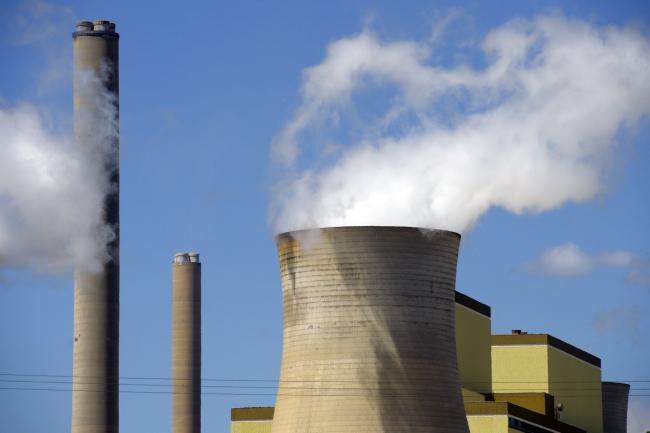(Bloomberg) -- Follow Bloomberg on LINE messenger for all the business news and analysis you need.
Australia’s booming coal industry has made it the world’s third-biggest exporter of potential carbon dioxide emissions locked in fossil fuels, placing it only behind oil giants Russia and Saudi Arabia.
Australia makes up 7% of all global fossil fuel exports by carbon dioxide potential, as it accounts for almost one-third of the world coal trade, according to a report Monday from The Australia Institute, which has been critical of the federal government’s efforts to combat global climate change.
While China and the U.S. are the world’s top greenhouse gas emitters in absolute terms, the report highlights the role relatively smaller polluters play in selling fossil fuels to other nations. Australia, which is also one of the biggest gas exporters, supplies economies throughout Asia, including Japan, China and South Korea.
Exports of fossil fuels and supply infrastructure play a crucial role in locking in increased emissions, and their impact is often ignored in climate change policy, The AI said in the report.
“Australia has a unique opportunity, and obligation, to face up to the climate crisis through policies to limit its carbon exports, starting with a moratorium on new coal mines,” it said. “The scale of exports from countries like Australia bring into stark relief why efforts to reduce world emissions must limit both demand and supply.”
In terms of its own greenhouse gas pollution, Australia generates 1.2% of the world’s emissions while having just 0.3% of the population, according to the report. Domestic emissions have been rising in recent years as a number of giant gas export projects come on stream, while coal-fired power is still the mainstay of its electricity grid.
‘Red Line’
Prime Minister Scott Morrison has consistently said that Australia will meet the 2030 targets to reduce carbon emissions it made under the Paris Agreement, but has no clear policy agenda to reach them. His government has been a strong supporter of the coal industry, including backing Adani Group’s controversial Carmichael project, which could open up a new mining region in the country.
His government last week rebuffed calls by leaders from its island nation neighbors for a commitment to phase out coal, and watered down language on climate change and coal in the communique that followed the Pacific Islands Forum in Tuvalu. Australia’s Pacific Minister, Alex Hawke, had earlier told local media that the coal industry is a “red line issue” for the nation that it needs to stand behind.
“Many argue Australia’s emissions are small on a global scale, but this research shows the complete opposite,” Richie Merzian, the institute’s climate and energy program director, said in a statement. “Our domestic emissions are large and our exported emissions are even larger.”
The AI based its analysis on data from the International Energy agency, with coal and gas figures for 2017 and oil for 2016. Emission factors for the fuels are from the United Nation’s Intergovernmental Panel on Climate Change.
(Updates with details from Pacific Islands Forum in eighth paragraph.)
